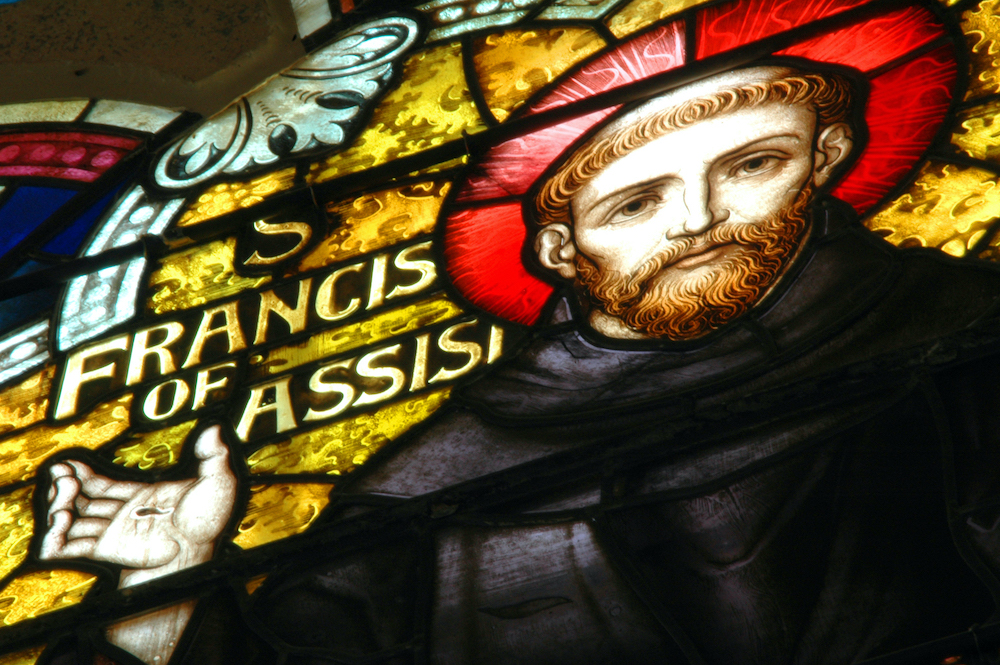August 24, 2020
Few saints are esteemed by Christians of all faith traditions more than St. Francis of Assisi. His perfect joy could not be diminished even as he traipsed through rain, sleet and snow because his new-found freedom came by embracing God as his Father, Lady Poverty as his bride, and the Earth as his mother.
With a heart as carefree as the birds of the air, Francis saw God everywhere – in everything and in everyone. The sun and moon, wind and water were siblings that made his heart sing. Therefore, it’s no surprise that “The Season of Creation” revolves around the Poverello’s (Italian for “the poor one”) feast day, for one day is insufficient to celebrate his contribution to the world.
The celebration of creation was introduced in 1989 by the Ecumenical Patriarch Dimitrios, adopted by the World Council of Churches in 2008 and by Pope Francis in 2015. The Holy Father designated the days between Sept. 1 and Oct. 4 (the feast of St. Francis of Assisi) as a time of prayer and care for the earth as a “Season of Creation” for the Roman Catholic Church.
Since then, people on six continents host events, ranging from prayer services to environmental clean-up brigades to organizing advocacy groups that promote a deepening reverence for creation. Due to the coronavirus, this year’s celebration will be different.
In the Tidewater area, the Ecumenical Working Community for the Environment, a Sowers of Justice Program, plans to help raise awareness by writing articles for church bulletins and asking local churches to incorporate creation themes in hymns and prayers of intercession during the Oct. 3-4 weekend liturgies.
It’s been said that no one mirrored Jesus’ life more closely than St. Francis, and while people may disagree with the views of environmentalists, few people can refute the saint’s ability to inspire. For Francis, the earth was a womb of wisdom that could be neither silenced nor stilled.
At times, its ancient and enduring knowledge competes, even clashes with the newness of progress, but unless we take time to listen to earth’s groaning, we remain recalcitrant children refusing to listen to our mother.
Spending time with nature is imperative if we are to appreciate the wisdom of a mother who offers a glimpses of a world that weaves the old with the new, death with new life, while uniting disparate strands and fostering the hope of communion among people of diverse interests and ideologies.
To emulate the saint, we must be willing to step out of our comfort zone and be sensitive to the effect of climate change on the poor, whose lives are negatively impacted the most.
If our home remains dry when shanties are submerged in water, it’s easy to turn a blind eye to those whose life is routinely disrupted by rising tides. If our well-being is not affected by logging that strips rainforests or our drinking water polluted by fracking, it’s easy to disregard the plight of our brothers and sisters whose lives and livelihoods are in jeopardy.
Amid a throwaway culture that is creating islands of plastic in the ocean, it’s time to turn to St. Francis and see the world through his eyes and treat it as we would our family. Although the saint was almost blind when he died, his clear-eyed vision has inspired thousands of people because for Francis, his dream became his journey.
So, the question remains: What about us? What drives our hopes and what are our dreams? If our hope for a better world remains only a dream, it soon becomes a fairy tale and nothing changes.
Transforming hopes and dreams into the journey is a balancing act that requires prayer, thoughtful research and implementation. Only when all three are realized will the world change as it did when the Poverello of Assisi dared to follow a dream whose journey continues to inspire the world.
For more information about the Season of Creation, feel free to contact Ed Marroni at [email protected].

